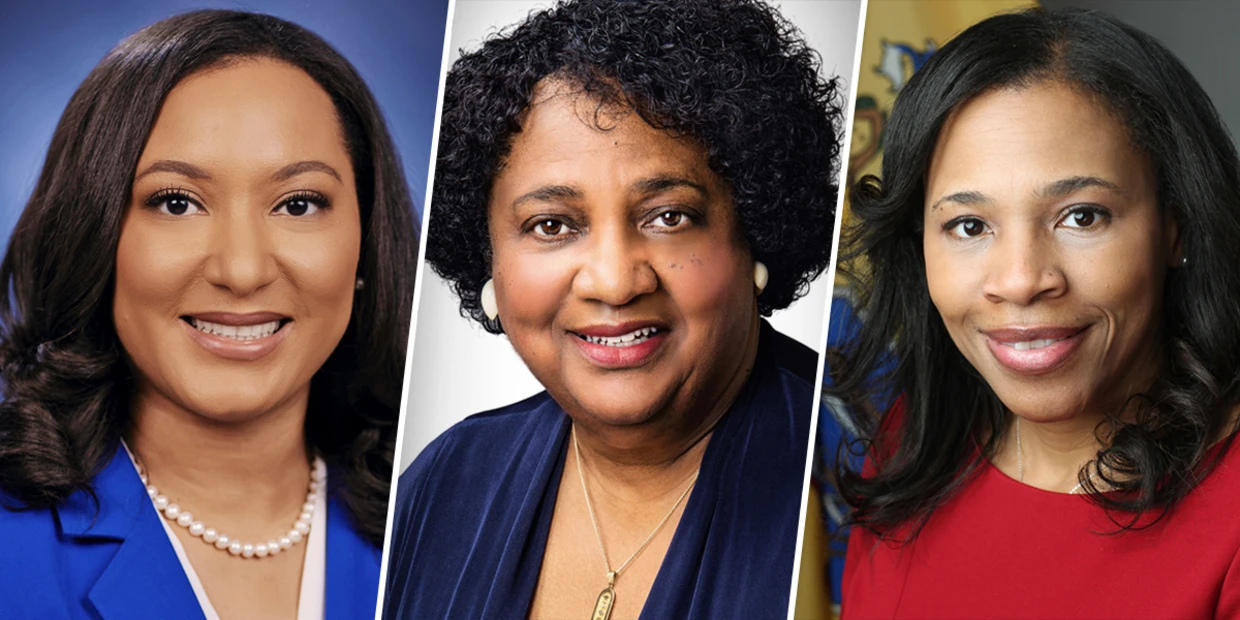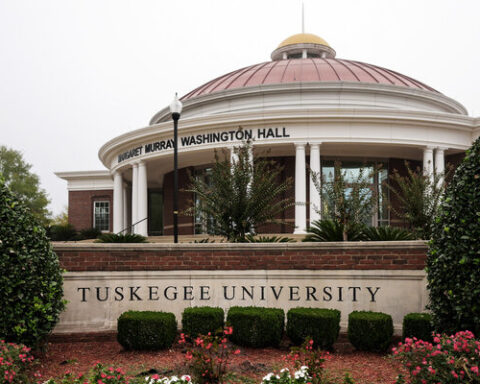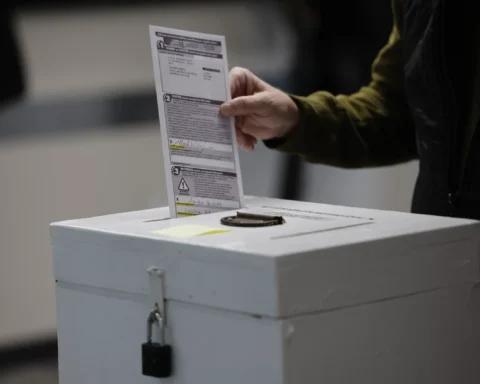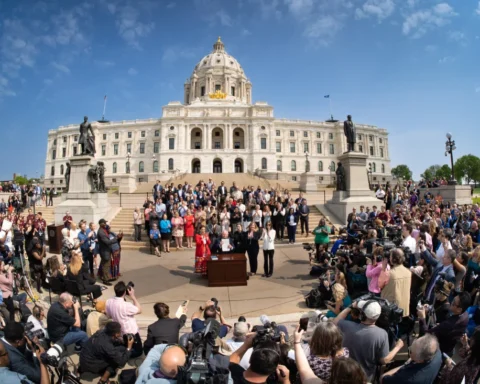California Secretary of State Shirley Weber knows all too well how the race for voting rights is an intergenerational marathon.
She’s the proud daughter of sharecroppers and is the first Black person to hold the position in California after Gov. Gavin Newsom nominated her at the end of 2020.
She told NBC BLK that descending from a family who couldn’t vote and becoming the state’s chief elections officer is a full circle experience for her family. She said her grandparents were essentially barred from voting. Her parents never registered to vote in Arkansas out of fear for their lives during the Jim Crow-era. They moved to California and her mother made their house a polling place to increase accessibility to voting for the local Black community.
“To look at that, and see how difficult life was … and know that my parents were so committed to voting, that to have their daughter really responsible for over 20 million voters in California is quite a hallelujah moment.”
Weber is one of three Black women Democrats focused on expanding voting rights across the country who hold the position overseeing elections and securing voting infrastructure throughout their states. The other two, Leigh Chapman in Pennsylvania and Tahesha Way in New Jersey, hold these posts that have become higher-profile statewide offices as the battle over voter access has amplified in recent years.
Virginia Secretary of State Kay Coles James, who was appointed this year by Gov. Glenn Youngkin, is a Republican. Last year as the president of the Heritage Foundation, James spoke out against federal legislation Democrats are pushing through Congress to expand voting rights, but has also said she has “zero interest in disenfranchising or suppressing the vote of any portion of the population.”
Weber, Chapman and Way, however, say they consult with each other regularly, working toward the broader goal of increasing voter turnout and ultimately eliminating voter suppression. Between their three states, they oversee the enfranchisement of more than 37 million registered voters. Way said that having multiple Black female secretaries of state across the country is attributable to advocates who came before them and paved the way for it to be possible.
“It’s a wonderful feeling,” to be in this cohort, Way said. “You always think back to not only minorities who fought for the right to vote, but you also think about women who fought for the right to vote. … So I’m in good company, with the lady secretaries from California and from my neighboring Pennsylvania.”
Chapman said it “means so much” to be a Black woman serving alongside two other Black women, with whom she speaks “frequently.”
“Throughout our history, Black women have really faced so many challenges. We’re one of the largest voting blocks in the country. The way Black women vote really determines the outcome of many elections at the state level and at the federal level, and we are not represented equally in political office. So the fact that there are three African American women in significant states administering elections at a critical time in our country where we’re dealing with pandemics, we’re dealing with racial reckoning, it’s an honor to serve with my fellow African American women secretaries of state.”
The right to vote has long been precarious for Black Americans throughout history, and has become even more delicate after the Supreme Court ruled in 2013 to rescind a key section of the 1965 Voting Rights Act that enforced voter access in particular Southern states.
Without that section of the law, states such as Georgia and Texas have closed polling sites in and near Black neighborhoods, taken actions to limit permanent absentee ballots or mail-in voting, and taken other actions that have an outsize impact on Black voter turnout. Several Republican-led states have either introduced or passed legislation to restrict voting access since the 2020 election, in which Black voters played a key role in electing Joe Biden as president, Weber said.
“They don’t think everyone should have the right to vote,” Weber said. “What they’re saying is that we don’t want all these folks who we haven’t validated, who don’t look like us, to have the decision to vote and to basically make decisions about their lives.”Chapman became acting secretary of the commonwealth of Pennsylvania in January after Gov. Tom Wolf appointed her in the battleground state, which saw numerous lawsuits seeking to recount verified ballots cast in the 2020 election. To keep a clear head through the scrutiny, Chapman keeps a visual reminder of the importance of her work in her office.
“It’s called “Sweet Liberty” by Kadir Nelson and it’s a portrait that he painted after the 2020 election,” she said. “She has a blue iris in her hair, which represents hope, and her sleeves are rolled up, and that represents the fact that it’s a lot of hard work to make sure that we have equal voting rights in our country and sometimes you have to roll up your sleeves.”
Pennsylvania finished redistricting Feb. 23, ahead of its upcoming primary election. Chapman said she’s focused on making sure people know how the redistricting will impact them, while also sharing general voting information, such as polling locations and how to decide whether to vote in person or by mail.
Chapman also wants the U.S. Senate to pass the languishing bills to expand and confirm voter access, the John Lewis Voting Rights Act and the Freedom to Vote Act.
“We really need to have more standards when it comes to voting in our country,” Chapman said. “The way you vote really shouldn’t be determined by what ZIP code you live in, but that’s the way our election system is run. And because there was a failure to make more national standards around the voting process, it’s now really up to the states to make sure that we’re passing comprehensive election reform.”
Pennsylvania passed legislation in 2019 to expand mail-in voting, a move that updated the election code for the first time in 70 years. While a challenge to the policy is making its way through the state courts, she said there’s still more to do. She wants to see same-day voter registration and more options from which people can choose how to vote.
Local counties administer elections, so Chapman is already making plans with the state’s 67 counties to make November’s midterm “the smoothest election possible.” Her goal is to engage the estimated 3.2 million eligible Pennsylvanians who chose not to vote in the November 2020 election and make them participate this time around.
In New Jersey, Way has been in office since 2018, and has taken on the tasks of implementing automatic voter registration, online registration, in-person early voting, online ballot tracking, introducing ballot drop boxes and allowing people on parole or probation to vote. She overhauled the voting system to be almost completely by mail for the 2020 election and said that election saw New Jersey’s highest voter turnout and the state led the nation in youth voter turnout.
The next step for her office, she said, will be “informing and educating our voters” further into civic engagement.
Weber encourages people to become more involved with the political process, not just by voting, but also through writing letters to elected officials, sharing information about voting and bringing voting rights up in every civic meeting.
“We’ve got to be persistent,” she said. “That’s what our ancestors did. They didn’t just give up because it was hard.”
As a California state legislator, Weber co-authored legislation in 2020 to restore the right to vote of people on parole, probation or still in jail.
But the policy faced a roadblock at first: How would parolees and formerly incarcerated people be told about their new rights? Weber said she initially faced resistance from the California Department of Corrections to notify beneficiaries of their restored voting rights, so she created a campaign to disseminate that information to thousands of formerly incarcerated people, as well as register many to vote.
Two years after the law went into effect, though, the department said it is now working with multiple agencies to inform parolees and formerly incarcerated people that they can vote, according to Vicky Waters, assistant secretary of communication. She added that voter information is also now included in the parolee handbook and that the department provides “wraparound re-entry services as we stand committed to the successful reintegration of formerly incarcerated people.”
Weber assumed her current role in January 2021, just weeks after the riot at the U.S. Capitol prompted increased scrutiny around elections and voting rights. She said she accepted her appointment to become secretary of state after Alex Padilla left the position to become a U.S. senator, because “democracy is fragile. Our right to vote is under attack.”
“I felt this was our time to make good on the civil rights era — that they had fought for us and given us so much,” she said. “This was going to be this generation’s time to basically continue to struggle and continue to fight.”
Aside from the riot and its fallout, she said she accepted the appointment because “I also knew that no matter all the things I’ve done, that if people lose the right to vote in this nation, and voting is under attack, we could lose it all simply because of the way that the votes would go and the change that would occur.”
That’s why Weber, Chapman and Way have committed their careers to the issue. Specifically, as Black women, they say they do not take their work lightly.
Weber said that being part of the most consistent voting blocks without being well-represented in the upper echelons of government or without protected voting rights is a form of silencing.
“Black women have always, in this country, been sometimes ignored, and yet counted on,” she said. “We’ve been kind of the silent force for change. When you look at the civil rights movement — and as a professor, I’ve studied it — there were so many women who sat behind the throne, and who made the civil rights era happen, whether it was Xeroxing materials or getting ready for the March on Washington, or whatever it was. It was just so many unsung heroes that were female and we kind of push men forward because that was the society in which we existed.”
But the tide, Weber said, is turning.
“I know that they’re strong and persevering, and determined to make sure that this is a fair and open election, always,” she added. “And that’s what we’ve always done.”

